
Web scraping in 2025 is no longer a matter of “use proxies, randomize user‑agents, and hope for the best.” Modern anti‑bot systems:

Web scraping in 2025 is no longer a matter of “use proxies, randomize user‑agents, and hope for the best.” Modern anti‑bot systems:
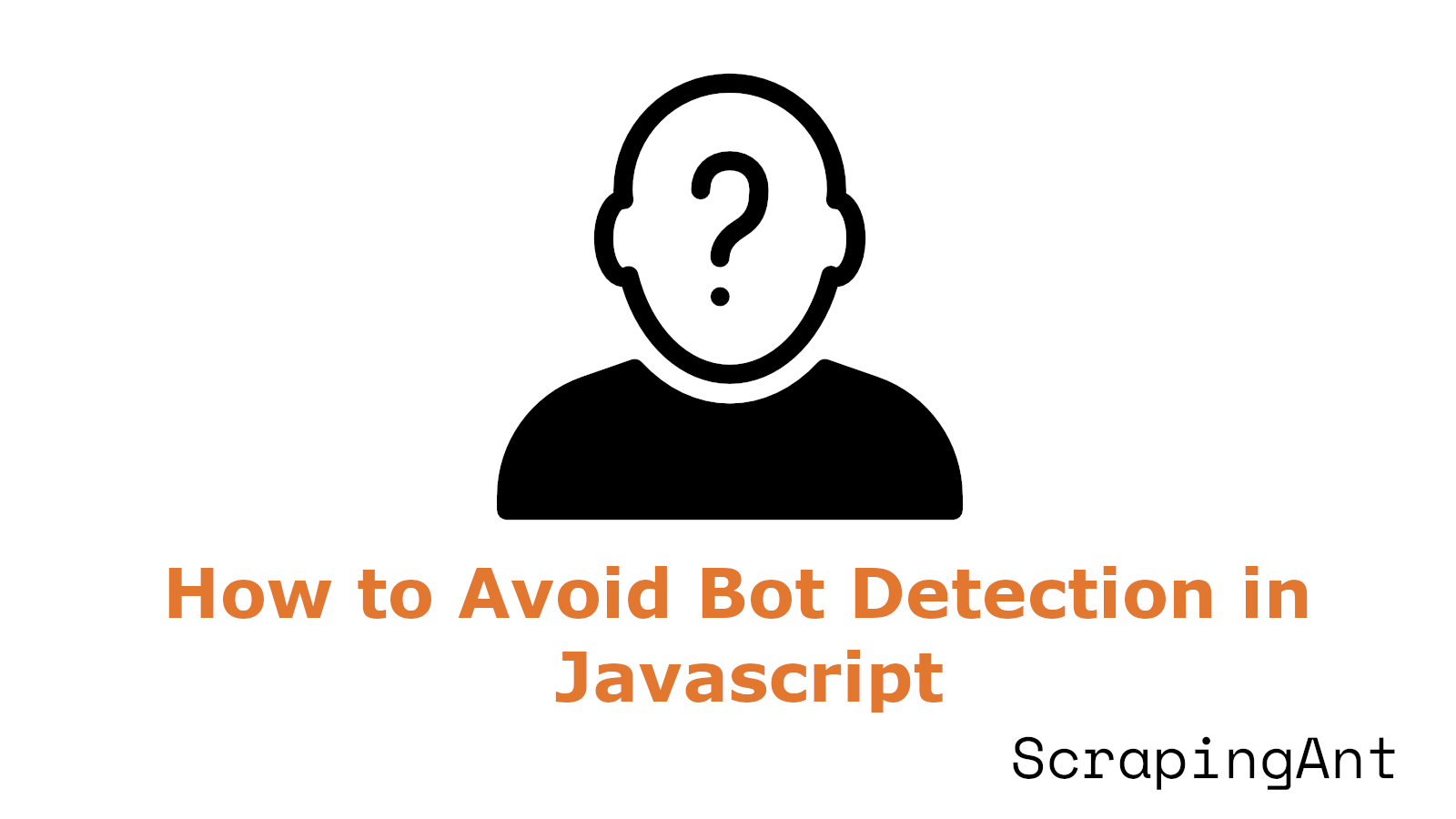
This comprehensive analysis examines the most effective JavaScript libraries and strategies for avoiding web scraping detection as of October 2024. The research focuses on three leading solutions: Puppeteer-Extra-Plugin-Stealth, Playwright, and Botasaurus, each offering unique approaches to circumventing detection mechanisms. Recent testing reveals impressive success rates, with Playwright achieving 92% effectiveness against basic anti-bot systems, while Puppeteer-Extra-Plugin-Stealth maintains an 87% success rate. The analysis encompasses not only the technical capabilities of these libraries but also their performance implications, resource utilization, and effectiveness against enterprise-grade protection services. Additionally, we explore advanced implementation strategies for browser fingerprinting prevention and behavioral simulation techniques that have demonstrated significant success in bypassing modern detection systems (HackerNoon).
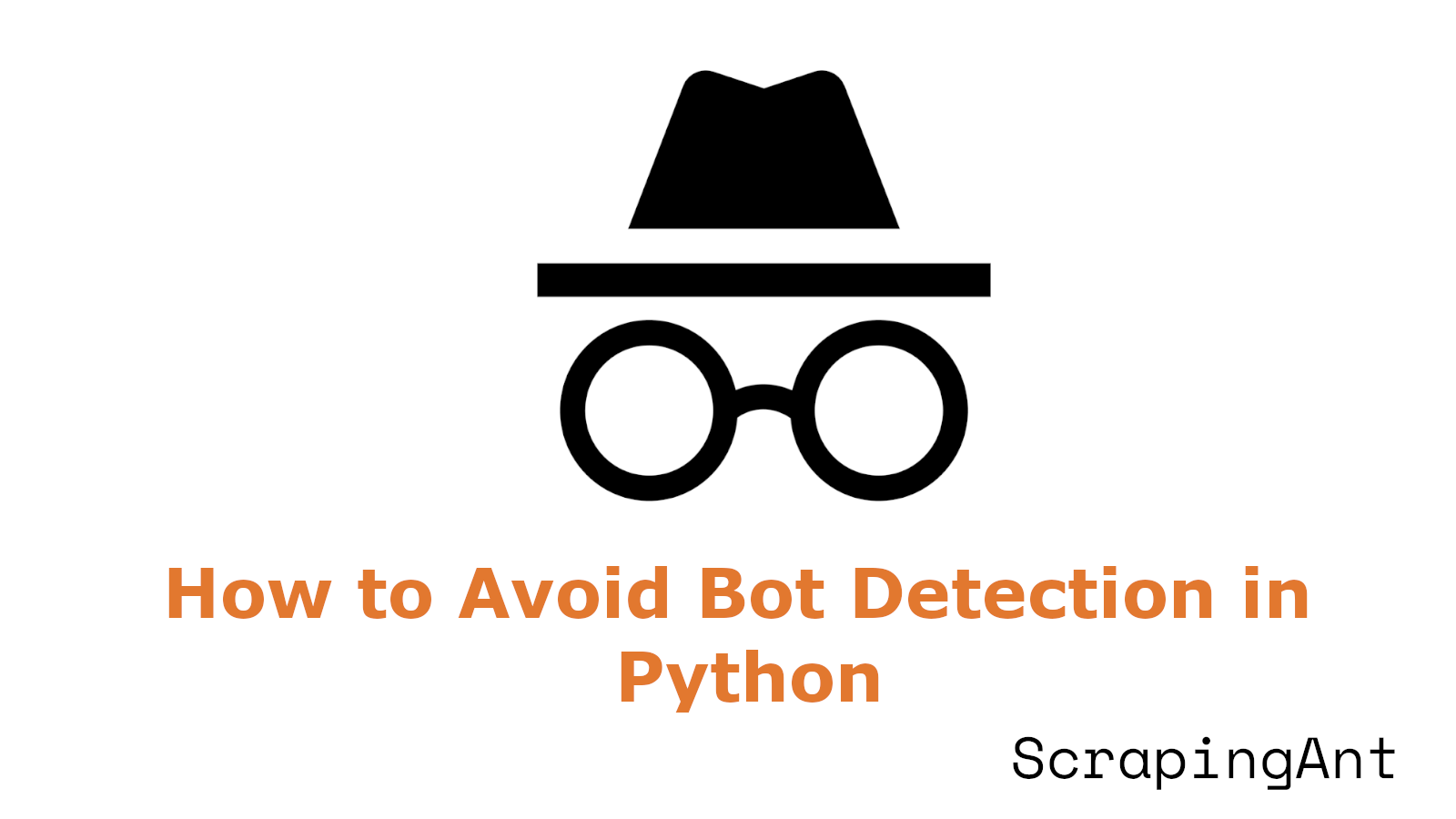
As websites implement sophisticated anti-bot systems, developers require robust tools to maintain efficient and reliable data collection processes. According to ScrapeOps' analysis, approximately 20% of websites now employ advanced anti-bot systems, making detection avoidance a critical consideration for web scraping projects. This research examines the five most effective Python libraries for web scraping detection avoidance, analyzing their features, performance metrics, and implementation complexities. These tools range from sophisticated proxy management systems to advanced browser automation solutions, each offering unique approaches to circumvent detection mechanisms. The analysis encompasses both traditional request-based methods and modern browser-based solutions, providing a comprehensive overview of the current state of detection avoidance technology in Python-based web scraping.
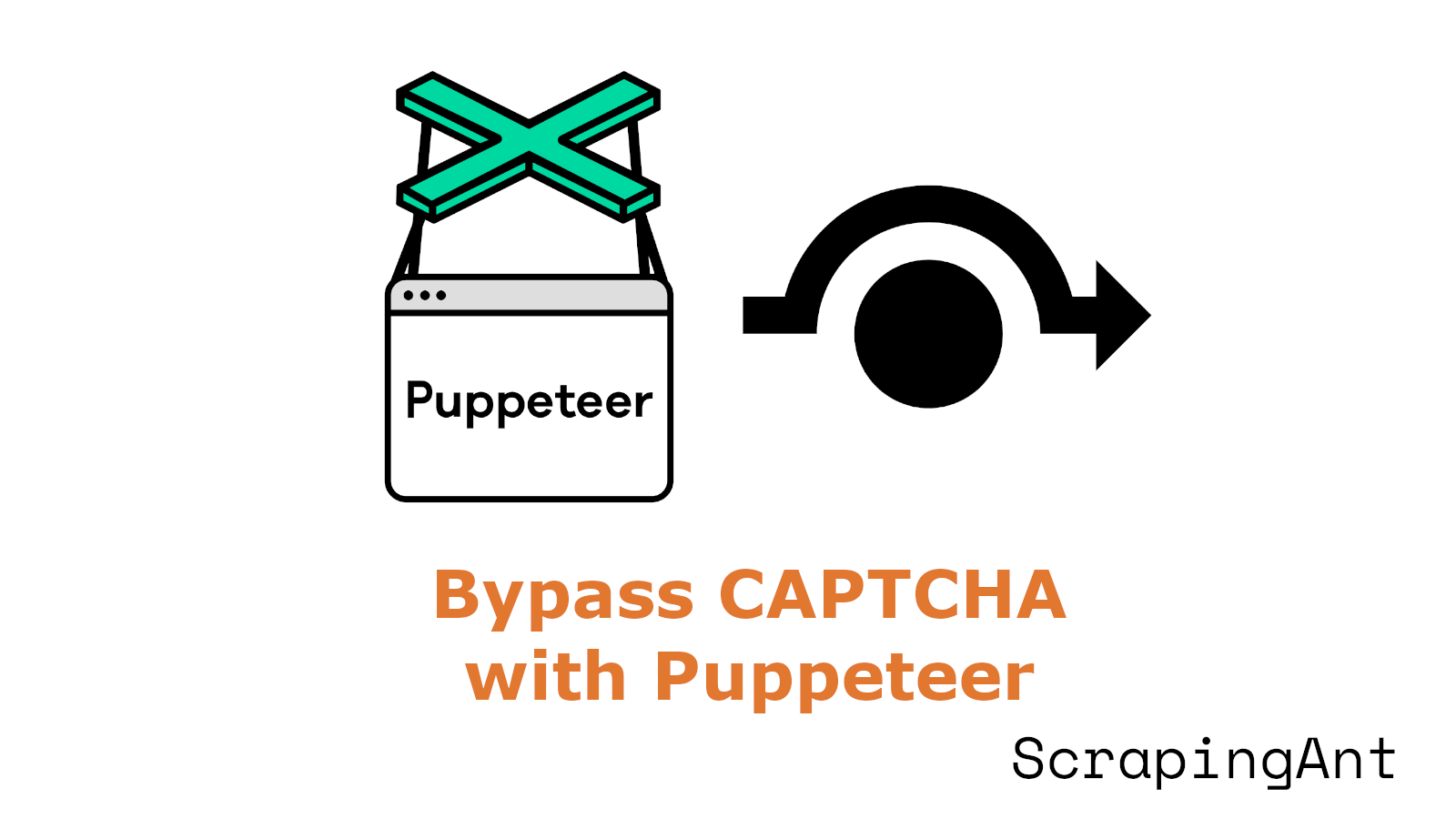
As of October 2024, the use of Puppeteer, a powerful Node.js library for controlling headless Chrome or Chromium browsers, has emerged as a popular tool for automating web interactions. However, CAPTCHAs (Completely Automated Public Turing test to tell Computers and Humans Apart) continue to pose significant obstacles to seamless automation. This research report delves into the cutting-edge strategies and techniques for bypassing CAPTCHAs using Puppeteer, exploring a range of sophisticated approaches that leverage advanced technologies and methodologies.
The importance of CAPTCHA bypass techniques has grown in parallel with the increasing sophistication of CAPTCHA systems. While CAPTCHAs serve a crucial role in preventing malicious bot activities, they also present challenges for legitimate automated processes, including web scraping, testing, and data collection. Recent studies have shown remarkable progress in this field, with some techniques achieving success rates as high as 94.7% in solving image-based CAPTCHAs.
This report will examine various strategies, including advanced image recognition techniques, audio CAPTCHA solving methods, browser fingerprinting evasion, machine learning-based prediction, and distributed solving networks. Each of these approaches offers unique advantages and has demonstrated significant potential in overcoming modern CAPTCHA systems.
As we explore these techniques, it's important to note the ethical considerations and potential legal implications of CAPTCHA bypassing. While this research focuses on the technical aspects and capabilities of these methods, their application should always be considered within appropriate and lawful contexts. The ongoing cat-and-mouse game between CAPTCHA developers and bypass techniques continues to drive innovation on both sides, shaping the future of web security and automation.
Looking for CAPTCHA bypassing guide for Playwright? We got you covered!
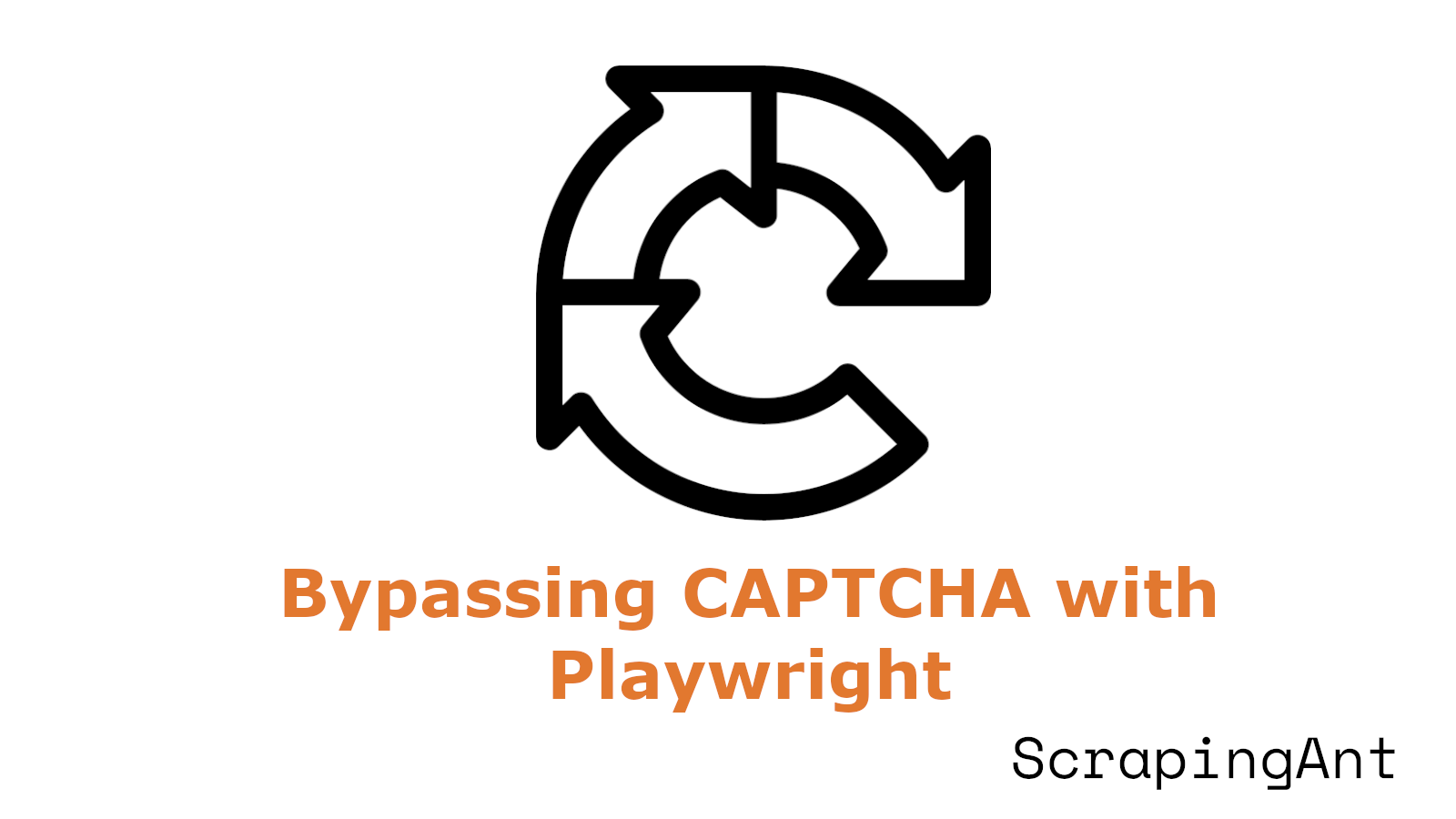
As of 2024, the challenge of bypassing CAPTCHAs has become increasingly complex, particularly for those engaged in web automation and scraping activities. This research report delves into the intricate world of CAPTCHA bypass techniques, with a specific focus on utilizing Playwright, a powerful browser automation tool.
The prevalence of CAPTCHAs in today's digital ecosystem is staggering, with recent reports indicating that over 25% of internet traffic encounters some form of CAPTCHA challenge. This widespread implementation has significant implications for user experience, accessibility, and the feasibility of legitimate web automation tasks. As CAPTCHA technology continues to advance, from simple distorted text to sophisticated image-based puzzles and behavioral analysis, the methods for bypassing these security measures have had to evolve in tandem.
Playwright, as a versatile browser automation framework, offers a range of capabilities that can be leveraged to navigate the CAPTCHA landscape. From emulating human-like behavior to integrating with machine learning-based CAPTCHA solvers, the techniques available to developers and researchers are both diverse and nuanced. However, the pursuit of CAPTCHA bypass methods is not without its ethical and legal considerations. As we explore these techniques, it is crucial to maintain a balanced perspective on the implications of circumventing security measures designed to protect online resources.
This report aims to provide a comprehensive overview of CAPTCHA bypass techniques using Playwright, examining both the technical aspects of implementation and the broader context of web security and automation ethics. By understanding the challenges posed by CAPTCHAs and the sophisticated methods developed to overcome them, we can gain valuable insights into the ongoing arms race between security measures and automation technologies in the digital age.
Looking for CAPTCHA bypassing guide for Puppeteer? We got you covered!
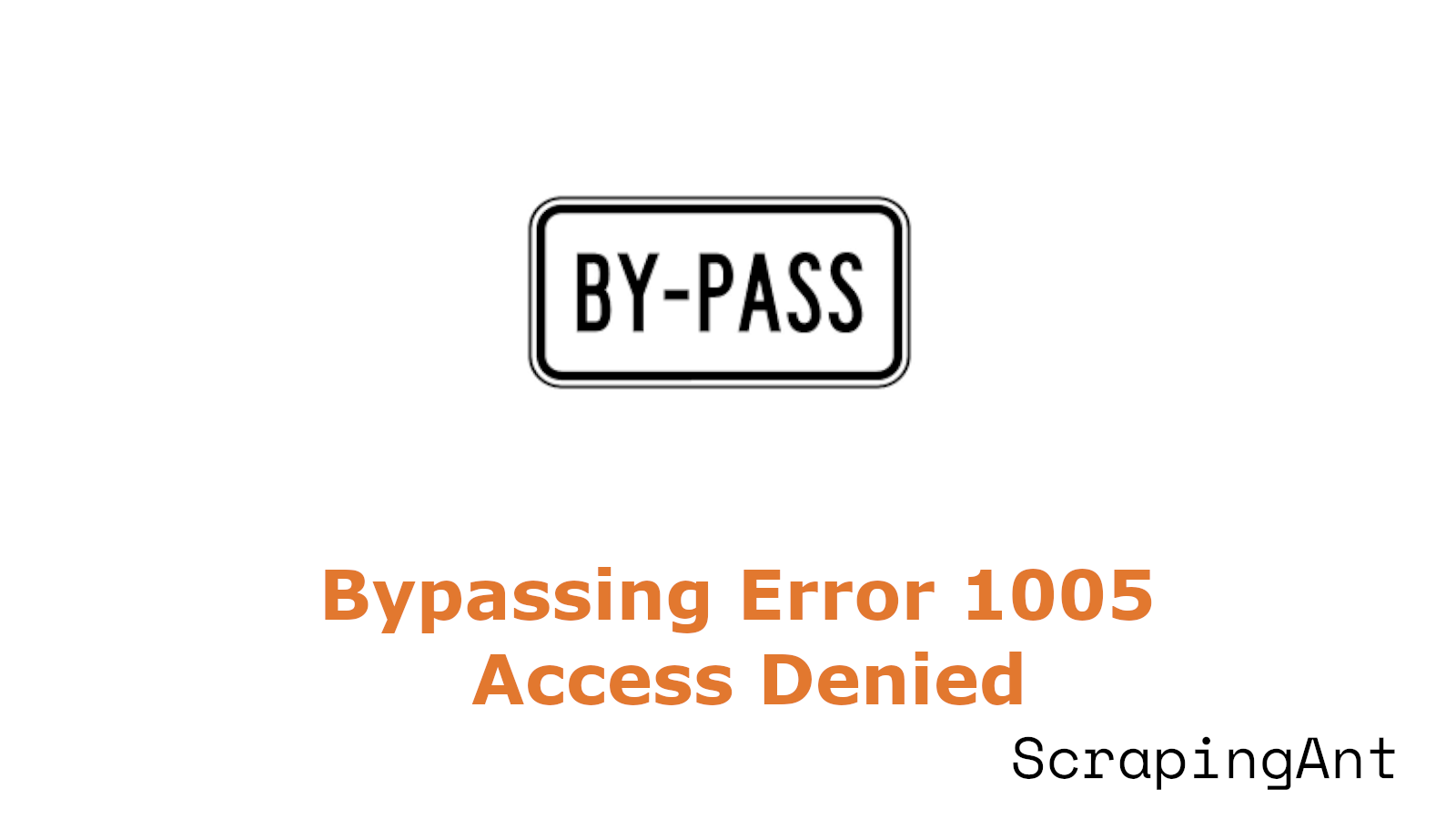
Error 1005 has emerged as a significant challenge for both users and website administrators. This error, commonly known as 'Access Denied,' occurs when a website's owner has implemented measures to restrict access from specific IP addresses or ranges associated with certain Autonomous System Numbers (ASNs). As of 2024, the prevalence of this error has increased, reflecting the growing emphasis on cybersecurity in an increasingly interconnected digital world.
Error 1005 is not merely a technical inconvenience; it represents the complex interplay between security needs and user accessibility. Website administrators deploy ASN banning as a proactive measure against potential threats, but this approach can inadvertently affect legitimate users. According to recent data, approximately 15% of reported internet censorship cases are due to overly broad IP bans (Access Now), highlighting the unintended consequences of such security measures.
The methods to bypass Error 1005 have evolved alongside the error itself. From the use of Virtual Private Networks (VPNs) and proxy servers to more advanced techniques like modifying HTTP headers, users have developed various strategies to circumvent these restrictions.
However, the act of bypassing these security measures raises significant legal and ethical questions. The Computer Fraud and Abuse Act (CFAA) in the United States and the General Data Protection Regulation (GDPR) in the European Union have implications for both those implementing IP bans and those attempting to circumvent them. As of 2024, there have been approximately 187 cases in U.S. federal courts involving CFAA violations related to unauthorized access, with about 12% touching on issues related to IP ban circumvention.
This research report delves into the intricacies of Error 1005, exploring its causes, methods of bypassing, and the ethical considerations surrounding these practices. By examining the technical aspects alongside the legal and moral implications, we aim to provide a comprehensive understanding of this complex issue in the context of modern internet usage and security practices.

One such formidable obstacle for uncontrolled data extraction is Imperva Incapsula, a cloud-based application delivery service that provides robust web security and bot mitigation. This comprehensive research report delves into the intricacies of bypassing Imperva Incapsula protection in web scraping, exploring both the technical challenges and ethical considerations inherent in this practice.
Imperva Incapsula has established itself as a leading solution for website owners seeking to protect their digital assets from various threats, including malicious bots and unauthorized scraping attempts. Its multi-layered approach to security, spanning from network-level protection to application-layer analysis, presents a significant hurdle for web scrapers. Understanding the underlying mechanisms of Incapsula's detection methods is crucial for developing effective bypassing strategies.
However, it's important to note that the act of circumventing such protection measures often treads a fine line between technical innovation and ethical responsibility. As we explore various techniques and strategies for bypassing Incapsula, we must also consider the legal and moral implications of these actions. This report aims to provide a balanced perspective, offering insights into both the technical aspects of bypassing protection and the importance of ethical web scraping practices.
Throughout this article, we will examine Incapsula's core functionality, its advanced bot detection techniques, and the challenges these pose for web scraping. We will also discuss potential solutions and strategies, complete with code samples and detailed explanations, to illustrate the technical approaches that can be employed. Additionally, we will explore ethical alternatives and best practices for data collection that respect website policies and maintain the integrity of the web ecosystem.
By the end of this report, readers will gain a comprehensive understanding of the complexities involved in bypassing Imperva Incapsula protection, as well as the tools and methodologies available for both technical implementation and ethical consideration in web scraping projects.
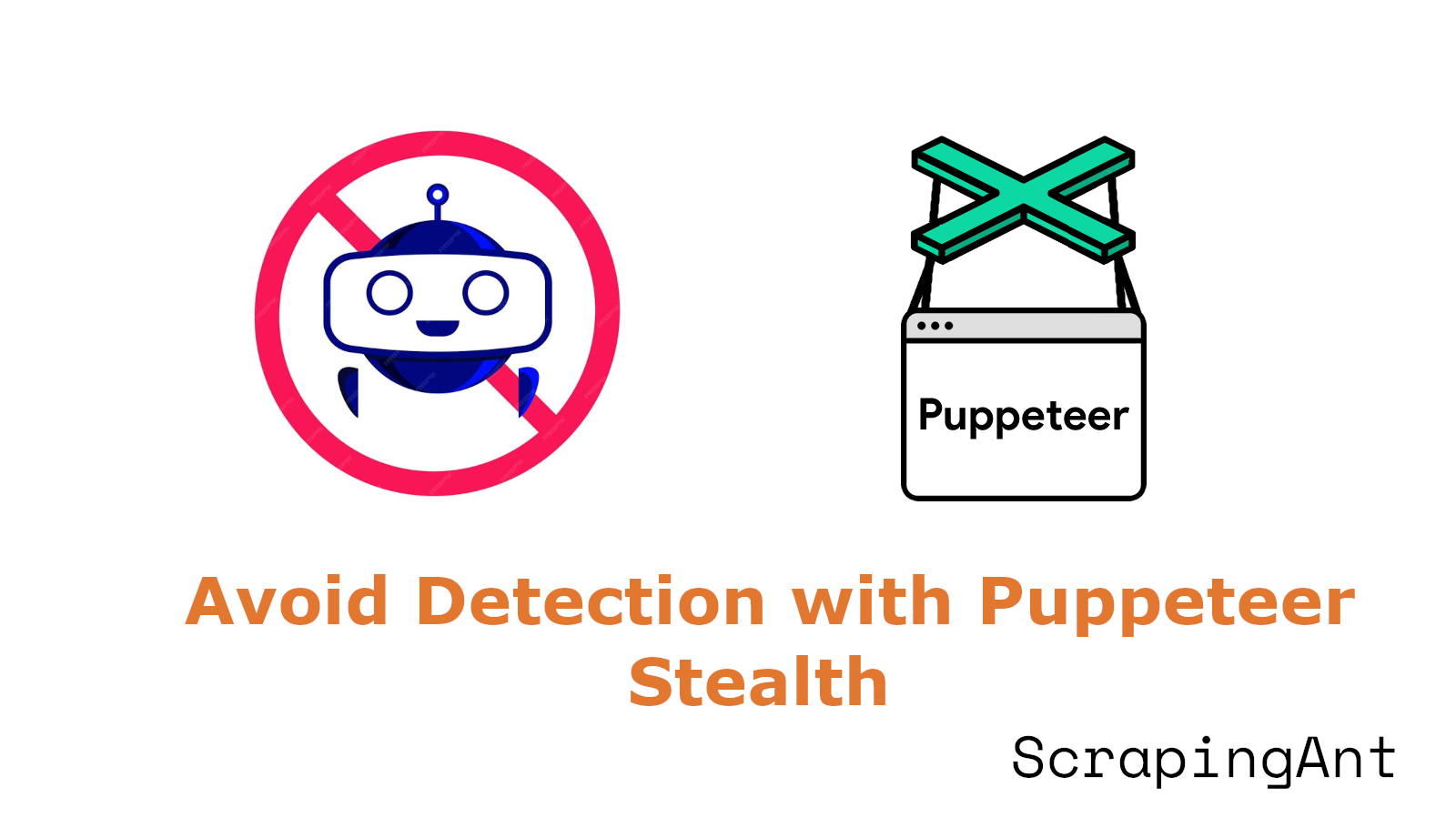
Puppeteer is a powerful Node.js library that provides a high-level API for controlling browsers through the DevTools Protocol. It is commonly used for testing, web scraping, and automating repetitive browser tasks. However, Puppeteer's default settings can trigger bot detection systems, especially in headless mode.
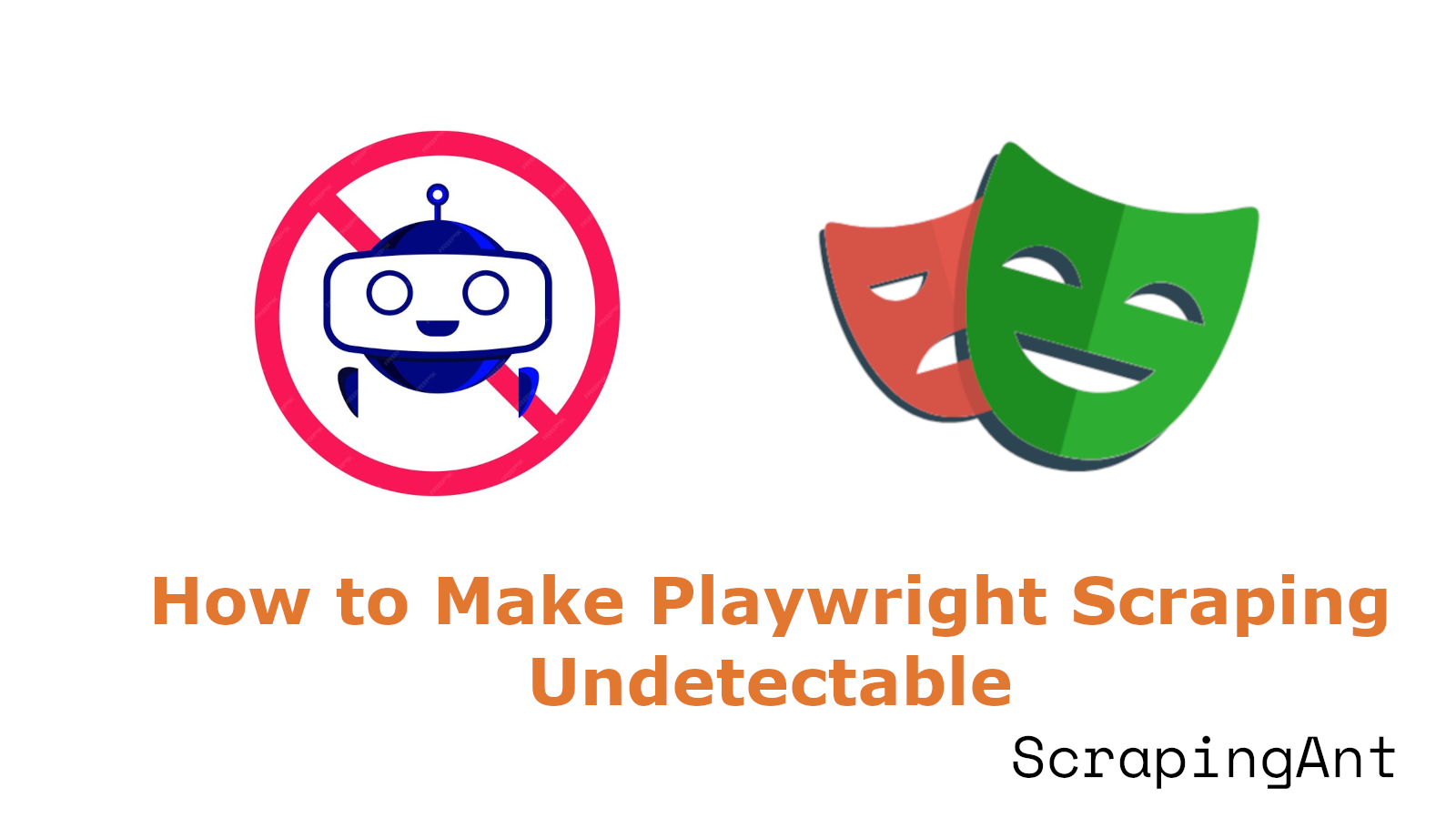
If your Playwright scraper has stopped working because of anti-bot systems used by websites, you’re not alone. This is a common issue in web scraping. As soon as you update your scraper to bypass the anti-bot measures, the companies behind these systems quickly upgrade their systems to detect and block your scraper again. It's a continuous arms race against anti-bot systems.
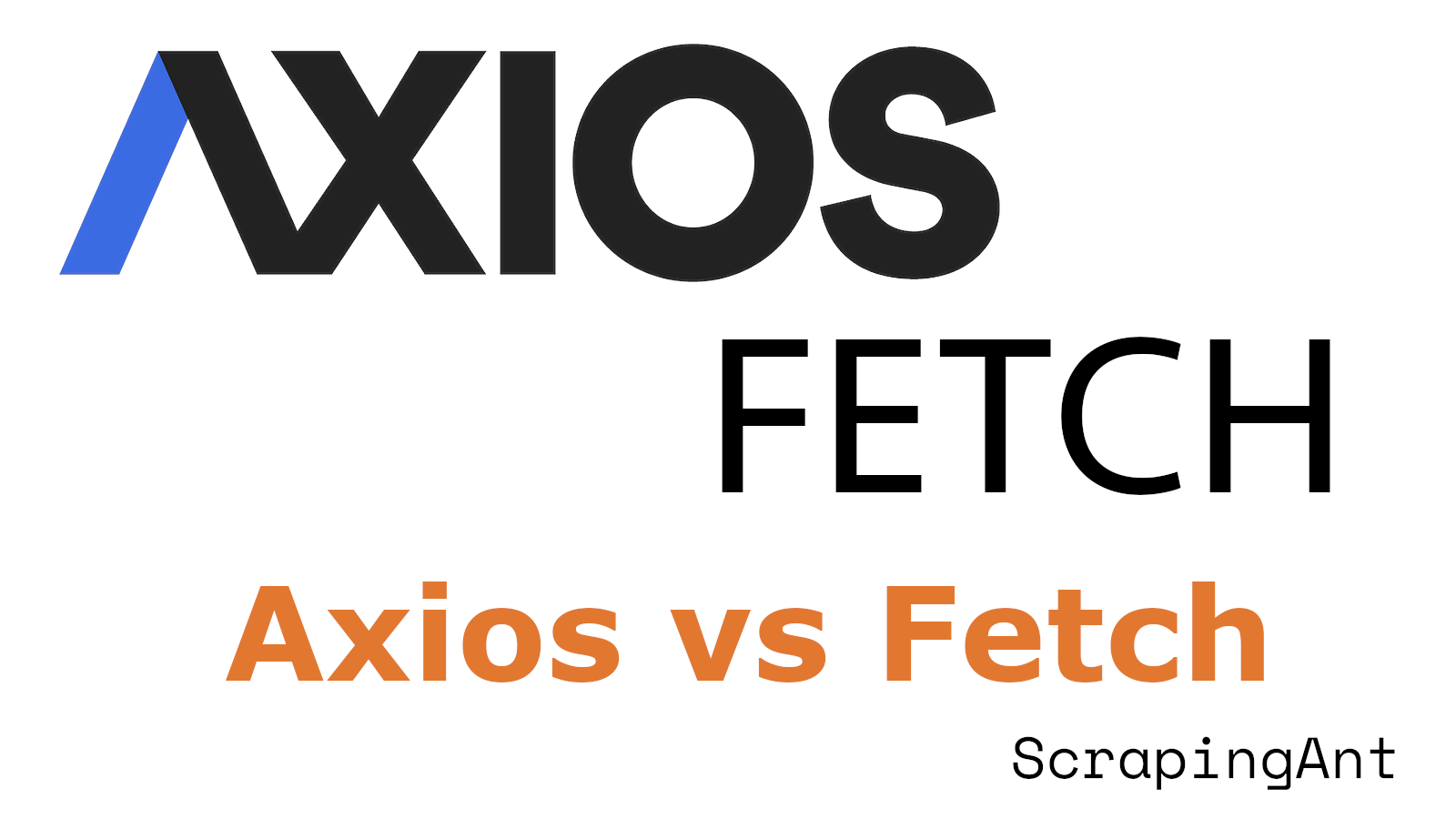
In the ever-evolving landscape of web development, making HTTP requests is a fundamental task for many applications. Two popular tools for handling these requests in JavaScript are Axios and Fetch. As developers, choosing the right tool for the job can significantly impact the efficiency and maintainability of our code. This comprehensive comparison aims to shed light on the key differences between Axios and Fetch, helping you make an informed decision for your next project.
Axios, a promise-based HTTP client for both browser and Node.js environments, has gained popularity due to its intuitive API and robust feature set. On the other hand, Fetch, a more recent addition to web browsers, provides a powerful and flexible low-level API for making HTTP requests. While both serve the same primary purpose, their approaches to syntax, error handling, and data processing differ significantly.
In this article, we'll delve into the nuances of Axios and Fetch, exploring their syntax, ease of use, error handling mechanisms, and JSON processing capabilities. We'll provide code samples and detailed explanations to illustrate the strengths and weaknesses of each approach. By the end of this comparison, you'll have a clear understanding of when to use Axios or Fetch in your projects, based on factors such as project requirements, browser support needs, and personal or team preferences.
As we navigate through this comparison, it's important to note that while Axios offers more built-in features and a simpler API, making it easier for many developers to use, Fetch provides greater flexibility as a low-level API. This flexibility, however, often comes at the cost of additional setup for common tasks. Let's dive into the details and explore how these differences manifest in real-world coding scenarios.